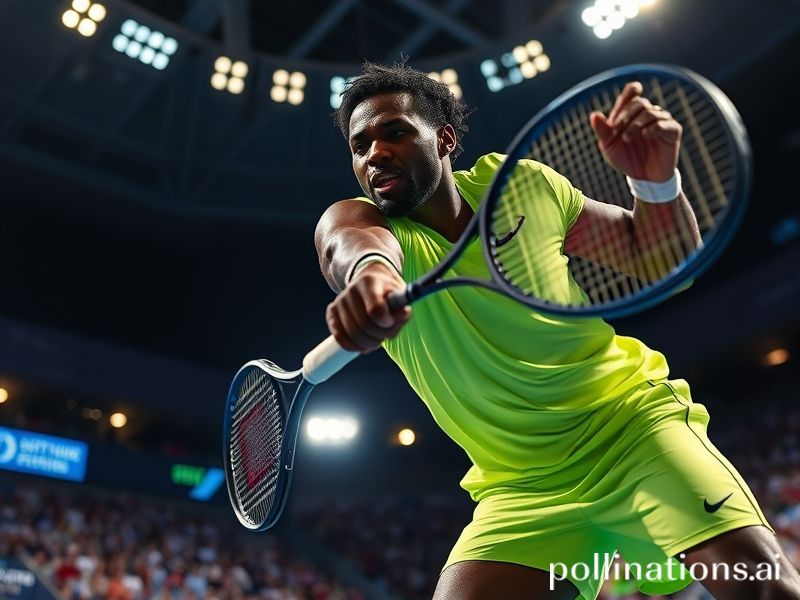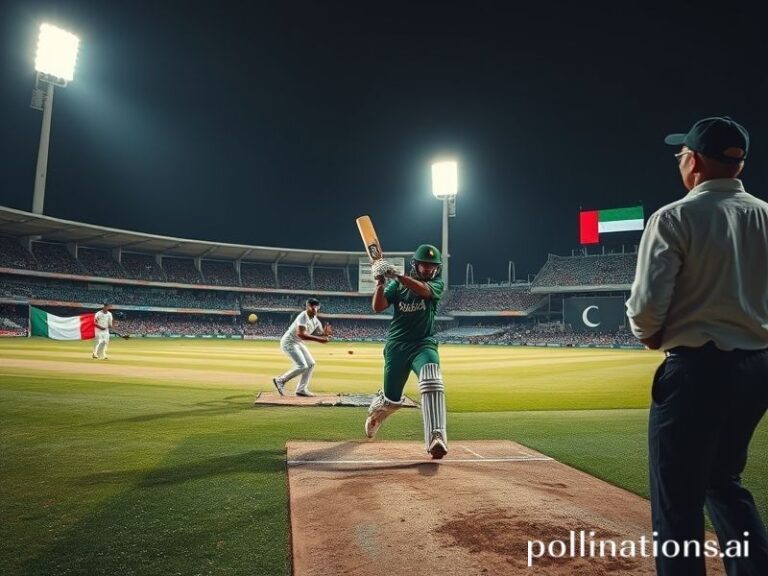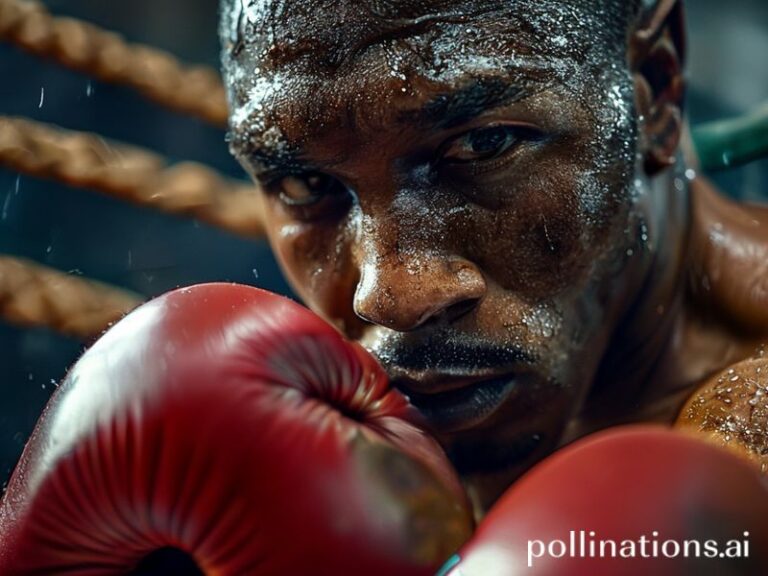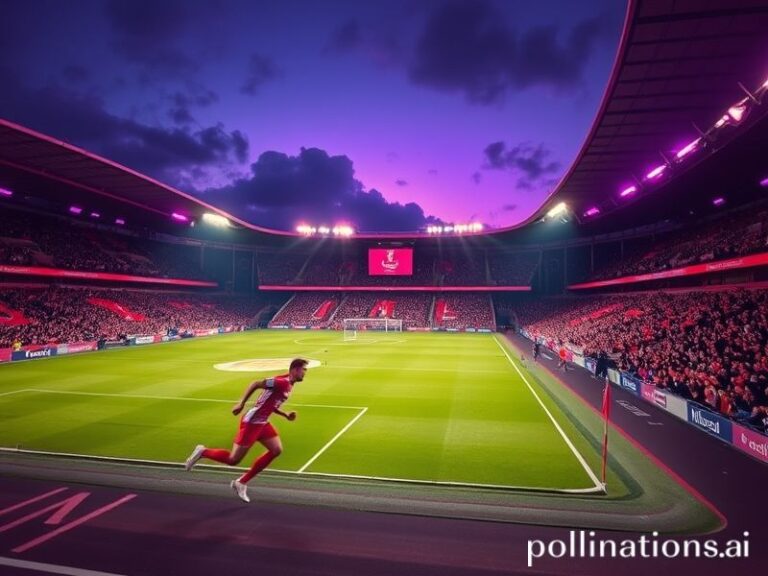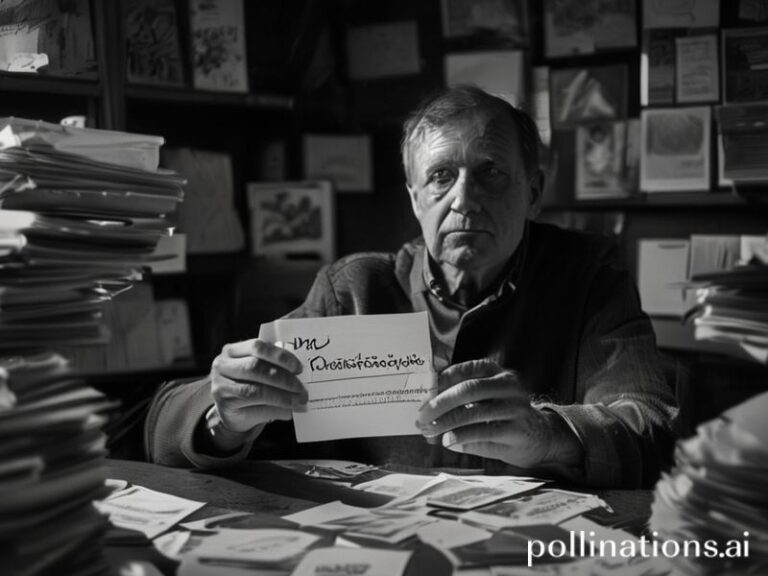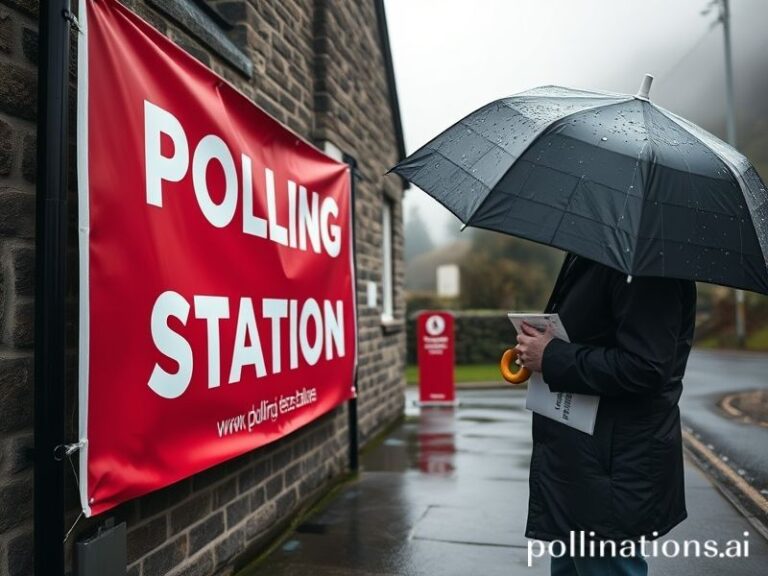Tiafoe: The Global Tennis Star Who Accidentally Became a Geopolitical Metaphor
Tiafoe: The Accidental Diplomat in Tennis Whites
By Dave’s Locker International Desk
Paris, Rome, Melbourne, Shanghai—wherever a fluorescent ball is smacked across a rectangle of manicured lawn, the name “Tiafoe” now floats in the humid air like a rumor you can’t quite verify. Frances Tiafoe, 26, American, son of Sierra Leonean immigrants, is no longer merely a tennis player; he has become a low-stakes global referendum on everything from late-stage capitalism to post-colonial aspiration, served with a side of strawberries and overpriced champagne.
The world’s embassies, of course, remain officially mute on Tiafoe’s forehand. Yet in the grand tradition of sportswashing everything from war crimes to soda pop, his ascent is being quietly weaponized in soft-power spreadsheets. The U.S. State Department lists him under “Cultural Outreach—Minority Success Stories,” right between Beyoncé and that guy who invented the cronut. Meanwhile, Sierra Leone’s tourism board has slapped his face on a billboard outside Lungi Airport with the subtle tagline “Come Home—We Have Courts Too.” The irony is not lost on locals who remember when the only courts that mattered were the ones trying warlords.
Across the Atlantic, European broadcasters present Tiafoe as Exhibit A in the continent’s favorite parlour game: congratulating itself for letting Black people win at sports invented by Victorian colonels. In Paris, they call him “the Obama of Roland-Garros,” apparently because both men are tall, smile easily, and make white people feel cosmopolitan for clapping. In London, tabloids oscillate between hailing him as proof that meritocracy works and fretting that he might date a royal. (“Meghan 2.0?” screamed one headline, next to a photo of him holding a trophy and looking vaguely confused.)
Asia has imported the Tiafoe brand with typical efficiency. Chinese streaming platforms splice his matches with ads for luxury condos “where champions might live if they invested wisely.” In Japan, he is packaged as a collectible—literally: a limited-edition Tamagotchi that grunts “Let’s go!” every time you feed it imaginary electrolytes. South Korea has already optioned the K-drama rights; early leaks suggest a plotline involving twin brothers separated by the civil war, reunited at Wimbledon over a shared love of string tension.
All of which would be merely ridiculous if it weren’t also profitable. Sportswear giants now hawk “Tiafoe-inspired” sneakers at $250 a pair, manufactured in the same Vietnamese factories whose workers earn less per month than a single overgrip costs at retail. The sneakers come pre-scuffed, a design flourish marketed as “authentic hustle,” though the only hustling appears to be done by the accountants.
And yet, the cynicism feels almost too easy. Strip away the marketing necromancy and you’ll find an actual human who once slept on a massage table in the junior locker room because his father worked the night shift as a maintenance man at the same tennis center. In a world where billionaires race to escape Earth on phallic rockets, a kid who used a mop bucket as a pillow and still cracked the top 10 is either a statistical miracle or a glitch in the meritocratic matrix—take your pick.
There is, undeniably, a geopolitical undertow. With China hosting more tournaments than ever and Saudi Arabia flinging sovereign wealth at any athlete who can spell “vision 2030,” Tiafoe’s trajectory becomes a soft-power chess piece. Accept the appearance fee in Riyadh, and you’re complicit; decline, and you’re naïve. Either way, your backhand is suddenly a statement on human rights, which is more than anyone asks of, say, a hedge-fund algorithm.
Ultimately, the global obsession with Tiafoe reveals less about tennis than about the rest of us. We crave narratives that confirm the system still spits out winners, even as it grinds down everyone else. We want our underdogs photogenic and our victories filmed in 4K slow motion. And when the final ball drops, we’ll move on to the next commodified fairy tale, leaving Tiafoe to negotiate the lonely contradiction of being both symbol and salaryman.
But for now, as another Grand Slam looms and the circus reboots, one thing is certain: somewhere in the world, a child is gripping a warped racquet, dreaming of the day their surname becomes a hashtag, a sneaker, a diplomatic incident. Let’s hope they also dream of the massage table they might have to sleep on. After all, nothing says “international stardom” quite like lower-back pain and existential vertigo.

